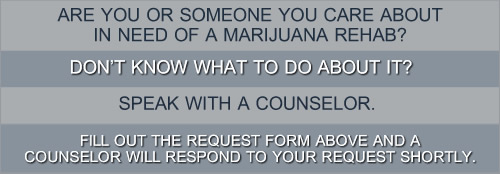
Marijuana Effects On The Body And Brain
Marijuana, also known by the names pot, weed, ganja, etc., is one of the most widely used illicit drugs in the world. Marijuana is derived from the hemp or the cannabis plant. Most people smoke the flowers, stem, and dried leaves of the plant in a pipe or a bong. Sometimes, it is mixed with food or brewed as a tea. Recently, they are also being smoked as blunts, empty cigars that have the tobacco removed and filled instead with marijuana, sometimes in combination with another drug, crack. In the concentrated form it is called hashish, which is a resin. The main active ingredient in marijuana is THC (delta-9-tetrahydrocannabinol) which causes most of the physiological and physical effects.
Marijuana Effects on the Brain
When marijuana is smoked, the THC is passed rapidly from the lungs into the bloodstream and it reaches the brain and other organs.
The THC acts on the cannabinoid receptors in the brain. The largest number of cannabinoid receptors is found in those areas of the brain that influence memory, pleasure, concentration, movement co-ordination, etc. Thus, ingestion of marijuana results in impaired memory, distorted perceptions, heightened pleasure, difficulty in thinking and problem solving, etc. A person who uses marijuana regularly almost always functions at a suboptimal intellectual level.
Other short-term effects of using marijuana include increased heart rate, anxiety and paranoia, dry mouth, red eyes, increased appetite, slowed down reactions, etc.
The initial effects of marijuana usually wear off after a couple of hours. However, the residual chemicals stay in the body for much longer times. Depending on the potency of marijuana used, the half life of THC can vary between 20 hours and 10 days. In regular users, marijuana's bad effects on learning and memory last for a long time, for days and weeks, after the effects of the drug wear off.
Marijuana Effects - Addiction
Abuse of marijuana in the longer term can lead to addiction. This leads to compulsive drug seeking habits, has very harmful effects on the body, and interferes with work/school/social activities. It is estimated that about 9% of the people who use marijuana become addicted to it.
Marijuana abusers who try to quit the smoking habit become victims of withdrawal symptoms that may include irritability, insomnia, increased cravings for the drug, anxiety, etc. These symptoms make it more difficult for them to abstain from using the drug. The withdrawal symptoms usually set in about a day's time following abstinence, peak in the next 2 or 3 days, and wear off in two weeks' time following continued abstinence.
Chronic marijuana use severely affects mental health and research has pointed out to increased occurrence of schizophrenia, depression and anxiety in users. High doses of marijuana can produce acute psychotic reactions in some users.
Other Marijuana Effects on Health
Marijuana increases the chances of heart attacks in vulnerable individuals. The drug has an effect on heart rhythms and may result in arrhythmias. Smoking marijuana constantly irritates the lungs. Marijuana smokers are more prone to developing bronchitis and respiratory disorders. Marijuana smoking has been linked to occurrence of cancers of the upper respiratory tract and the lung.
There is also some evidence that points out to the fact that marijuana smoking causes some changes in an individual that make him/her more prone to becoming addicted to other drugs such as heroin or cocaine.
- Questions?
